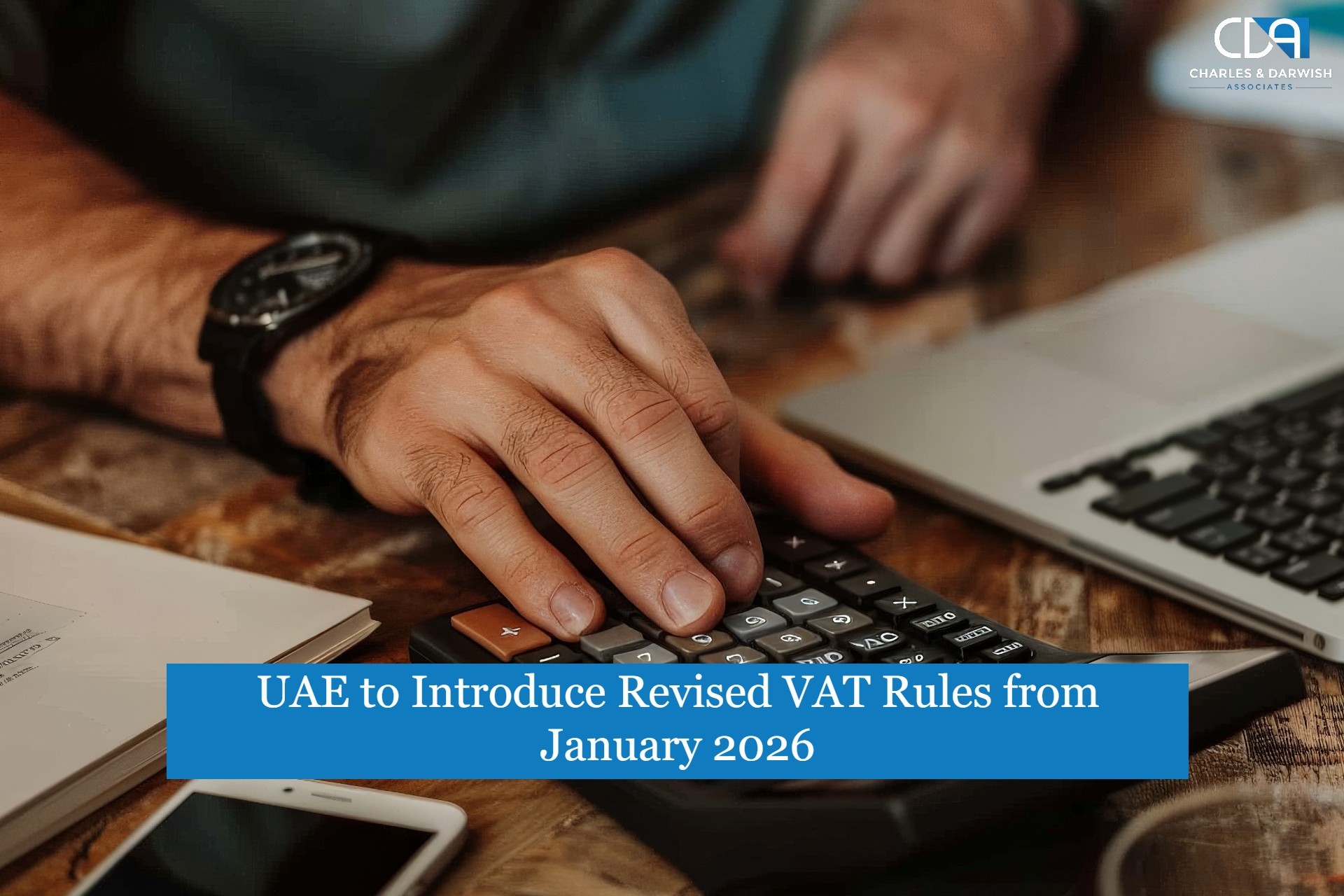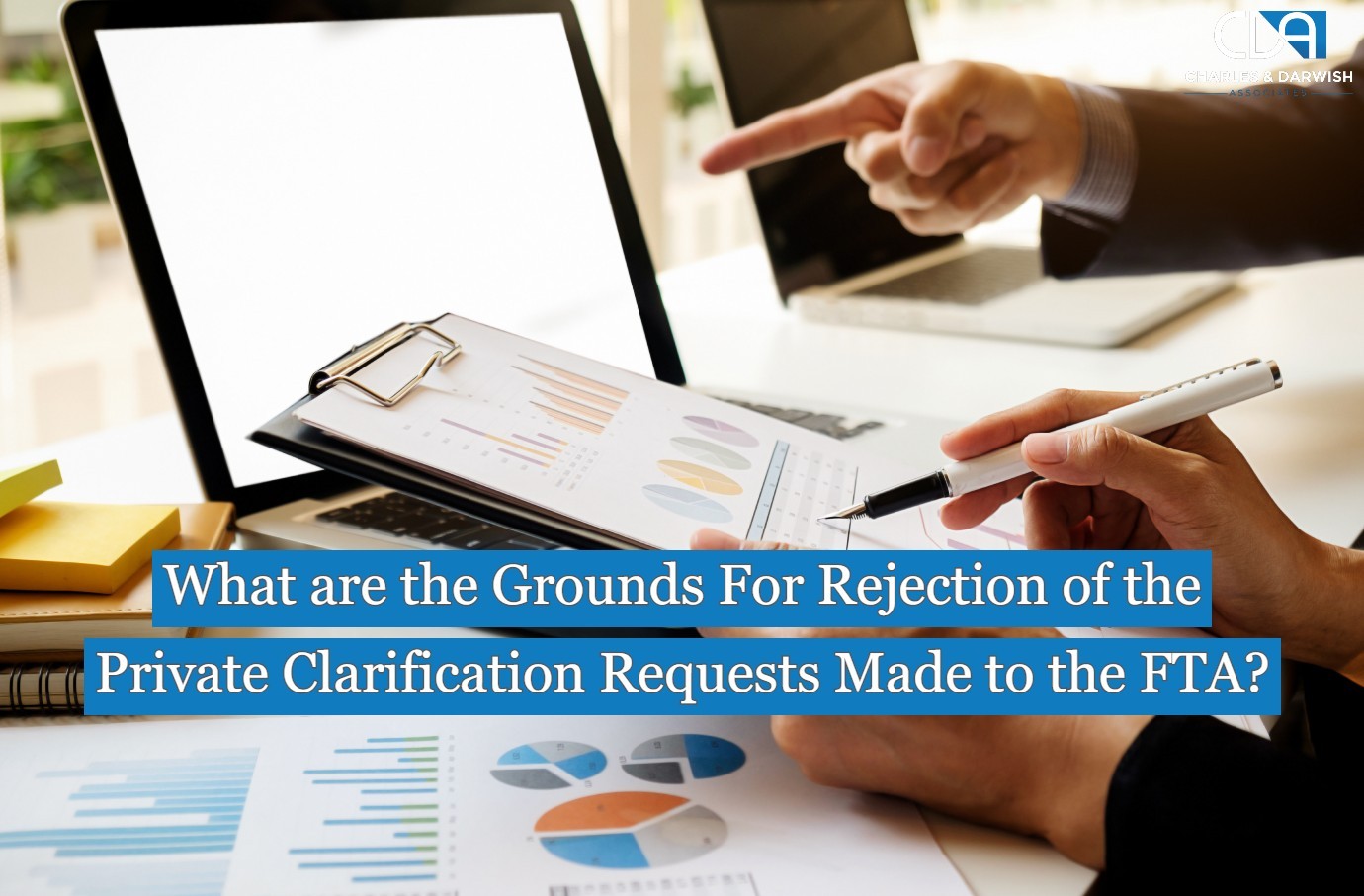How Does Vat Work In Uae?
VAT is applied on goods and services at each stage of the supply chain with the ultimate burden to be borne by the end user.
Companies in the UAE that report annual taxable revenues of over AED 375,000 will be required to register under the GCC VAT system.
Service Industry, Manufacturing, Food and Beverages, Hotel, Travel, Luxury & Real Estate, Electronics, Smart phones, Cars, Jewellery, Watches, Eating out, and Entertainment will fall under the taxed category.
What is VAT?
Value Added Tax or VAT is an indirect tax on the spending or use of goods and services levied at each point of sale.
This new source of income will be used for high-quality public services by shifting to a more maintainable consumption system. It also aims to reduce the government’s dependence on oil and other hydrocarbons as a source of revenue.
VAT implementation in Dubai and the UAE
The United Arab Emirates Implemented Value Added Tax (VAT) on 1 January 2018 with a rate of 5 percentages on goods & services.
VAT provides the country with a new basis of income, donating to the continued facility of high-quality public services in the future. It also helps the government move towards its vision of plummeting dependence on income from oil and other hydrocarbons. The VAT implementation is in coordination with other GCC countries.
The after effect of VAT implementation in Dubai, UAE
- Helps Boost the economy
- Helps Diversification of Government Revenue
- Makes the UAE Tourist friendly, and ensures tourists’ safety after the launch of Tourist Refund Scheme
- Revenue from the tax is utilised for betterment of the public infrastructure
- Looking into the success of Expo 2020 in the light of huge investments
VAT Registration for Businesses
- A business is required to register for VAT if their taxable supplies and imports exceed the mandatory registration threshold of AED 375,000.
- A business may choose to register for VAT voluntarily if their supplies and imports are less than the mandatory registration threshold, but exceed the voluntary registration threshold of AED 187,500.
- Correspondingly, a business may register voluntarily if their expenses exceed the voluntary registration threshold. This will help the start-up businesses with no turnover to register for VAT.
You can also read: How VAT in UAE Will Affect the Common Man
VAT-related tasks of businesses
- All businesses in the UAE should account their financial transactions.
- All businesses should safeguard that their financial records are exact and up to date.
- Companies falls under minimum annual turnover requirement are obliged to register for VAT.
- Businesses that are not coming under VAT-registration should maintain their financial records in any event, in case the authorities need to decide whether they should be registered.
- Registered businesses must charge VAT on taxable goods or services they supply.
- Registered businesses may reclaim any VAT they’ve paid on business-related goods or services.
- Registered businesses should keep a range of business records which will allow the government to check that they comply with the rules.
- A VAT-registered business must report the amount of VAT charged on a regular basis online.
- A VAT-registered business must report the amount of VAT paid to the government on a regular basis online.
- If a business charged more VAT than paid, the difference should be paid to the government.
- If a business paid more VAT than charged, the difference can be reclaimed.
VAT in Real Estate
The VAT on real estate sector depends on whether it is a commercial or residential property.
- Supplies (including sales or leases) of commercial properties are taxable at the standard VAT rate
- Supplies of residential properties are generally exempt from VAT.
- The first supply of residential properties within three years of completion at the time of VAT introduction is zero-rated.
VAT for Zero-rated sectors
VAT will be charged at 0% in respect of the following main categories of supplies:
- Exports of goods and services to outside the GCC
- International transportation, and related supplies
- Supplies of certain sea, air and land means of transportation (such as aircrafts and ships)
- Certain investment grade precious metals (gold, silver with 99% purity)
- Newly constructed residential properties, that are supplied for the first time within three years of their construction
- Supply of certain education services, and supply of relevant goods and services
- Supply of certain healthcare services, and supply of relevant goods and services
VAT- exempt sectors
The following categories of supplies will be exempt from VAT:
- The supply of some financial services that explained in VAT legislation
- Residential properties
- Bare land
- Local passenger transport
VAT Registration Process
Basically, a business can opt for any of the two types of VAT Registration process:
1. Mandatory Registration
It is mandatory that a business must register for VAT:
- If the total value of its taxable supplies and imports exceeds the obligatory registration threshold over the previous 12 months
- If the business expects that the total value of its taxable supplies and imports will exceed the obligatory registration threshold in the next 30 days.
The threshold for mandatory registration of a business is AED 375,000. But this threshold is not applicable to foreign organisations.
2. Voluntary Registration
A company may opt for Voluntary Registration:
- If it does not meet the mandatory registration criteria,
- If the total value of its taxable supplies and imports or taxable expenses in the preceding 12 months surpasses the voluntary registration threshold,
- If the business foresees that the total value of its taxable supplies and imports or taxable expenses will exceed the voluntary registration threshold in the next 30 days.
The threshold for voluntary registration of a company is AED 187,500.
How to register for VAT?
Businesses can register for VAT through the e-Services portal on the FTA website. Nevertheless, they must generate an account first. The FTA implemented an easy-to-use system for complying with tax returns and paying taxes via the e-Services portal which is available for 24/7 on the FTA's official website.
VAT Return Filing
All the VAT registered organisations or the ‘taxable persons must submit a ‘VAT return’ at the end of each tax period to the Federal Tax Authority (FTA). Businesses have to file for tax return electronically through the FTA portal ‘eservices.tax.gov.ae’. You must make sure that you have met all tax returns requirements before filing the VAT return form on the portal.
When are businesses required to file VAT return?
- Quarterly for businesses with an annual turnover below AED150 million
- Monthly for businesses with an annual turnover of AED150 million or more.
- The FTA may, at its discretion, allocate a different tax period for certain type of businesses.
Important Note: If a business fails to file a tax return within the specific time frame, the violator will be liable for penalties as per the provisions of Cabinet Resolution No. 40 of 2017 on Administrative Penalties for Violations of Tax Laws in the UAE.
VAT Assessment
The government will not directly collect the VAT. So, it is the responsibility of the registered businesses to charge the tax to the customers based on the output and input tax, and pay back to the government.
Output tax is the VAT collected on selling goods or providing services to the clients. Input tax is the VAT paid on purchasing raw materials for the goods or services.
Hence, the formula for VAT assessment is:
VAT = Output Tax – Input Tax
VAT impact on Profit
VAT is not an additional burden or cost for the business. In general, every business acts as a mediator for the Government. Only the effect is reflected in the cashflow. So, proper planning and effective management of tax collection and its execution will give added value and cash inflows to every business.
Why CDA Audit?
Unawareness is bliss, but it is a gaffe in the case of VAT. Businesses that fail to comply with the rules and regulations of VAT may have to face serious penalties. These penalties may harm the goodwill of the business as well as the reputation of the businessman in the market. Hence, it is reasonable to consult a VAT expert before VAT submissions to avoid these stumbling blocks. CDA provides top notch Tax Consultancy Services, and the Implementation and Tax Reclaim Services at a very reasonable charge. CDA also provides Accounting &BookKeeping Services, Accounts Outsourcing Services, Internal Auditing Services and a lot more other services related to the business in the UAE.
The CDA experts are chosen because they are insightful of the procedures of the VAT. They know the right protocol to follow for the UAE VAT registration. That is why CDA is the first choice to be considered by the companies for their compliance with the VAT laws in the UAE.

Mark Thompson
Full-stack Developer, Blogger, and Tech Enthusiast.
Mark specializes in digital marketing, SEO, and content strategy.








5e2e959831935.png)




